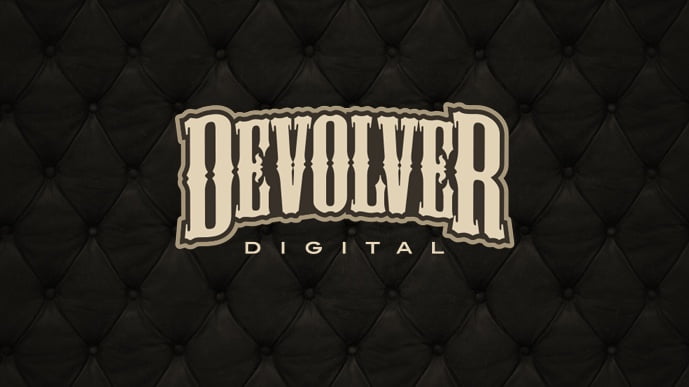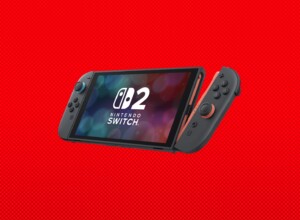Devolver Digital’s Nigel Lowrie takes to the GDC stage and says simply:
“One of the biggest things that people need to know, is that you don’t need a publisher.”
Brave words from a man who, erm, works for one of the industry’s leading publishers. And although Lowrie’s talk is titled You Don’t Need a F-ing Publisher, it’s very much focused on why having a publisher might be a good idea and what developers should consider before choosing one.
“You’re all pouring your heart and soul into these games and it’s pretty terrifying when you are getting close to launch. So, often, developers don’t want to go it alone,” says Lowrie.
He likens the process to the famous scene in the opening moments of The Legend of Zelda.
“Link is about to embark on this grand adventure. He walks into this room and some old dude gives him a sword; Link takes it and doesn’t ask a single question. He walks out and he thinks he has all the information he needs. But what do we find out? Yes, the sword is helpful but it’s not the only tool that he actually needs. He needs quite a few other things to finish his adventure.”
If there was one consistent piece of advice throughout Lowrie’s talk, it was to always ask questions.
“Link doesn’t know what kind of cut this guy is taking off the back of his adventure, right?” continues Lowrie. “Maybe this guy is getting 75% of all the rupees? ”
Publishers have long been part of the games industry, and over time have developed a somewhat fractious relationship with the development community. And rightly so, says Lowrie.
“The most obvious thing you see is at the end of every Kickstarter. People ask ‘Why are you doing this Kickstarter?’ Well, because they want to avoid publishers. They’re bad, they ruin creativity, they cheat them out of money. And, honestly, publishers have behaved badly for years. It’s a perfectly rational thing to say.”
With the advent of free development tools and digital distribution channels the development landscape has changed significantly, and the balance of power has shifted.
“Digital distribution really changed a lot of things. It bestowed an unbelievable amount of leverage with the developer. It changed everything because you can get directly to consumers,” Lowrie says.
This has also led to the rise of a service industry around the independent development scene, with everything from localisation companies to testing services all vying for the attention of indie studios.
“The indie publishing market has lots of options now. Most important is to understand each one’s direction, strategy and capabilities,” he says.
Lowrie cites how companies such as Sony and Indie Fund have their own specialisms and how some – such as Team 17 and Double Fine – are developers themselves, and can offer useful insights into the production process – in addition to financial backing.
“Consider what are the things a publisher should do for you and what are the things a partner should do for you?” explains Lowrie. “These things are not always at odds with each other, but they don’t necessarily come hand in hand either.”
There are several core elements that Lowrie says a publisher should absolutely offer. These include marketing, advertising, events and strategy.
“What does marketing mean? It’s PR, it’s advertising, it’s events, it’s getting the game out to the world. And this is where you need to start asking questions. Do they have a team of people? Do they contract their work out? All these things are valid,” he says. “They should be talking about YouTubers and streamers when it comes to PR. If they don’t, walk out the door, lock the door, and set the building on fire.”
And all of this should be underpinned by a clear marketing strategy.
“You need a cohesive campaign. You need to look at what the publishers have done before. What is their strategy? What have they done in the past?”
Digital distribution provides a huge opportunity for independent developers, but an equally huge challenge. With so many channels available getting a game discovered is a growing problem. Publisher guidance, and contacts, remain important in increasing the chance of success.
“Five years ago, publishers would tell you, ‘I can get your game on Steam’. That was enough to get people signed up with them. That’s not right anymore,” says Lowrie. “You can go on Steam, or bypass Steam or go on PlayStation or Itch.io, or all sorts of amazing channels. But, fair or unfair, publishers do have an advantage. And you should ask them what those advantages might be.”
In addition to the basics, Lowrie says that developers should be asking for more. They should aim to find a partner, not just a publisher.
“You need to ask, what next? Sell me on what’s next. This is the crucial moment. A lot of developers don’t keep asking questions.”
A little research can go a long way and Lowrie recommends talking to a publisher’s previous clients. Good or bad, they will provide an insight into their approach.
“Don’t just talk to the people who sold a lot of copies; they’ll probably be happy. Speak to those who didn’t sell a tonne of copies,” he says. “Maybe you can find a new dimension and find out how that publisher carries themselves when things aren’t as stellar as you hoped.”
The perfect publishing partner provides four things, says Lowrie. It begins with creativity and enthusiasm for the developer but most importantly, for the game.
“When I say creativity I don’t just mean good ideas for launch trailers. I’m talking about being enthusiastic about every element of the game. Look at the publisher’s body of work, it’s the easiest thing you can do. See what they’ve worked and whether it was successful. Ask, do they apply creativity to everything they do?”
The right publisher should also provide a stage and spotlight for the developer, making sure it’s their name that gets the credit and attention when the game is released.
“It’s important for you as a developer and as a studio, that when you’re done with the game, people know about you and your work, and that you did it. And then, when you make the next thing, they know who you are.”
The key to achieving this is forging a good working and personal relationship, says Lowrie.
“You need to understand the organisation of the company itself. Who are you dealing with on a day-to-day basis? Who can speak to when you need to get things done.”
And this leads to Lowrie’s final point: brutal honesty between the publisher and the developer and vice versa.
“If you have the other things, brutal honesty won’t be a problem. There are a lot of uncomfortable talks that might happen when you’re working with a business like a publisher. Money is an uncomfortable subject, not just the the initial talks about money but the talks about needing more money. And if money starts rolling in, understanding how it’s coming in and where it’s going.
It’s not just about finances, however. A good publisher will be supportive but also critical of your work when required.
“You need them to tell you what they think honestly about the game and you need to be able to accept that criticism,” says Lowrie.
Lowrie’s closing remarks serve as reminder that even if you do find the right publishing partner, nothing can be taken for granted.
“If a publisher guarantees you success, they are f***ing lying to you,” he concludes. “There’s no guarantee of success.”






